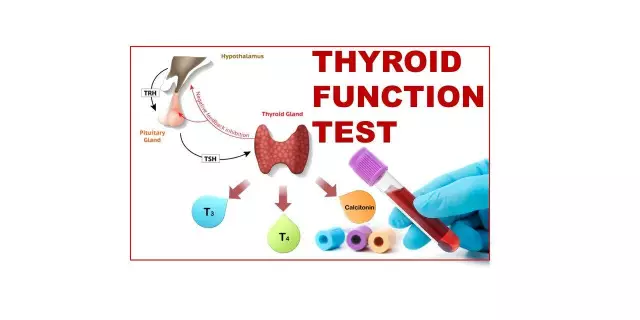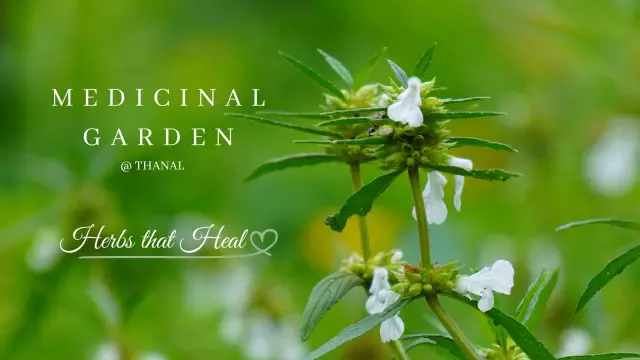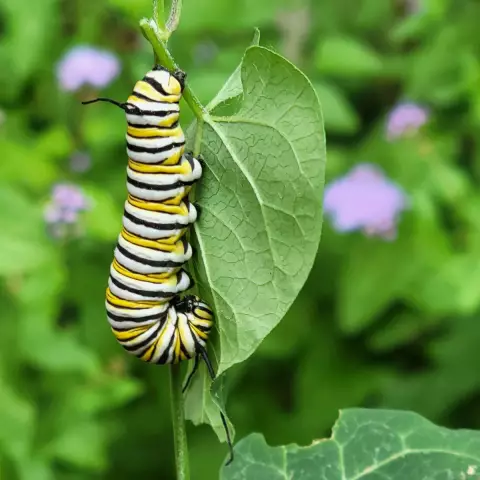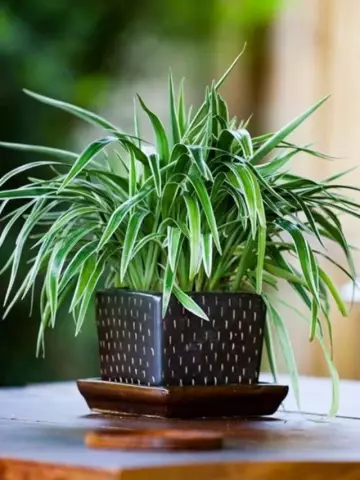- Author Rachel Wainwright wainwright@abchealthonline.com.
- Public 2023-12-15 07:39.
- Last modified 2025-11-02 20:14.
15 plants to help normalize thyroid function
According to statistics, more than 500 million people suffer from thyroid pathologies in the world. Malfunctions in the work of this organ lead to severe metabolic disorders, the development of diseases of the heart, blood vessels, reproductive and nervous systems. In severe cases, excessive or insufficient production of the main thyroid hormones (thyroxine and triiodothyronine) leads to a significant decrease in the quality of life, to disability.
Treatment for thyroid dysfunction usually involves taking medications containing iodine. Medicinal plants can be of great help in therapy. If patients do not tolerate iodine-containing drugs, herbal treatment is often the only possible solution.
Schisandra chinensis
A fruiting liana that grows mainly in the Primorsky Territory and the Far East. All parts of the plant contain flavonoids, anthocyanins, catechins, lignans, and essential oils. The pulp of fruits (berries) is extremely rich in ascorbic acid and other vitamins. Lemongrass preparations have a powerful tonic and stimulating effect, increase blood pressure and immune activity. They are very effective for weakness, hypotension, which are often signs of thyroid disorders. The berries contain a moderate amount of iodine. Tinctures and decoctions of herbal raw materials are recommended for hypothyroidism. Patients note a quick burst of energy, a decrease in the incidence of seasonal infections, an increase in mental and physical activity.
Lemongrass is a powerful therapeutic agent. Taking drugs from it is contraindicated in case of increased nervous excitability, arterial hypertension and acute heart failure. In addition, they should not be used in the treatment of children under 12 years of age, as well as pregnant and lactating women.

Source: depositphotos.com
Rhodiola rosea (golden root)
Herbaceous perennial, rhizomes and roots of which contain iodine and biologically active substances. It is a powerful adaptogen, has anti-inflammatory and antitumor effects. It is used (usually in the form of an extract or alcohol tincture) to relieve symptoms of hypothyroidism and revitalize the thyroid gland.
The list of contraindications is similar to that which must be considered when treating lemongrass.

Source: depositphotos.com
Ashwagandha (Indian ginseng)
Preparations from this plant have been used since ancient times in Ayurvedic medicine. Ashwagandha roots contain a unique set of antioxidants that have a beneficial effect on the immune system, optimize the functioning of the endocrine glands and relieve the effects of stress. The antiseptic properties of Indian ginseng are also widely known, allowing it to be used in the treatment of inflammatory processes.

Source: depositphotos.com
Reimaniya sticky (Chinese)
The root tubers of this ornamental plant, also called the Chinese foxglove, are used to prepare infusions and extracts. The drugs have a powerful anti-inflammatory effect, help to optimize the production of thyroid and adrenal cortex hormones, lower blood sugar levels, and normalize heart function.

Source: depositphotos.com
Licorice
Licorice root has been used for centuries in folk medicine as a powerful antitussive agent. Recent studies have shown that it contains a complex of bioflavonoids and saponins, which activates the production of the hormone cortisol, which helps to improve the condition of patients suffering from hypothyroidism.

Source: depositphotos.com
Bacopa carolina
Found wild in ocean waters off the coast of Central and South America, this alga is a popular aquarium plant. Taking Bacopa extract daily can help increase thyroid hormone production by 40%.
Kelp
Edible giant seaweed, more commonly known as seaweed. Due to its high iodine content, it is used in the treatment of certain diseases caused by thyroid dysfunction. Many experts consider kelp to be a worthy substitute for pharmacy drugs, especially in the initial stages of hypothyroidism.
Unfortunately, not all algae of this species can be used without health risks. Laminaria actively accumulates toxic substances in its leaves (especially compounds of heavy metals), and some areas of the World Ocean in which it lives are so polluted that the plant materials extracted in them can cause poisoning. Therefore, you should purchase dried or canned seaweed only from trusted suppliers.

Source: depositphotos.com
Black walnut
A close relative of the walnut. It grows in North America. Contains a wide range of vitamins, polyunsaturated fatty acids, rare trace elements and biologically active substances. Due to the presence in the composition of a special compound - juglone, it is a rich source of iodine, comparable to seafood.
Has anti-inflammatory, antitumor, healing and tonic effect. Among other things, it is used to optimize the functioning of the organs of the endocrine system.

Source: depositphotos.com
Echinacea
A popular medicinal plant, preparations of which are used to strengthen the immune system, as well as as an anti-inflammatory and analgesic. Echinacea herb tincture has been successfully used for thyroid pathologies (in particular, Hashimoto's goiter or Graves' disease) as an adjunct to drug therapy.

Source: depositphotos.com
Eleutherococcus
Another inhabitant of the Far Eastern region. Eleutherococcus drugs do not have a direct effect on the endocrine system, but they are an effective means of reducing stress, have a beneficial effect on the nervous system, enhance the immune response, increase vitality and blood pressure. Therefore, Eleutherococcus is in great demand in the treatment of thyroid pathologies.

Source: depositphotos.com
Coleus
An ornamental plant, actively used in indoor floriculture, as well as in the design of urban and suburban landscapes. Coleus leaves are extremely rich in flavonoids, which have a stimulating effect on the thyroid gland. Herbal preparations are used for hypothyroidism.

Source: depositphotos.com
Hawthorn
Infusions and decoctions of the fruits of this shrub are widely used as a remedy for the treatment of cardiac disorders and lowering blood pressure.
More recently, scientists have discovered that hawthorn preparations have unique properties that allow them to be used to correct hormonal levels. They can be used in the treatment of both hypo- and hyperthyroidism and, in some cases, are a good substitute for medications.

Source: depositphotos.com
Melissa officinalis
Melissa is a common herb, well-known to many, whose herb infusion and extract have a pronounced soothing effect. But this is not all: the substances contained in lemon balm preparations can inhibit the production of thyroid hormones. Melissa is used in the treatment of hyperthyroidism.

Source: depositphotos.com
Zyuznik virginsky
A plant of the labiate family, has long been used in homeopathy for the treatment of diseases of the nervous system. Due to the unique set of phenolic acids, it has an effect on the thyroid gland, similar to the effect of lemon balm. Zyuznik's drugs inhibit the synthesis of thyroid-stimulating hormone and help relieve the severity of the symptoms of autoimmune thyroiditis, Graves' disease and hyperthyroidism.
Guggul extract
Guggul is a resinous sap secreted by the commiphora tree native to India. The extract of this substance is used to activate the production of thyroid hormones and fight the manifestations of hypothyroidism. Experts note the extraordinary mild, sparing effect of guggul extract on the body, which makes it possible to avoid affecting other organs of the endocrine system when treating the thyroid gland.

Source: depositphotos.com
The use of herbal raw materials requires caution, since medicinal herbs can cause allergic reactions or specifically interact with medicines. In addition, each such drug has its own contraindications, therefore, before starting treatment, it is necessary to consult a doctor.
YouTube video related to the article:

Maria Kulkes Medical journalist About the author
Education: First Moscow State Medical University named after I. M. Sechenov, specialty "General Medicine".
Found a mistake in the text? Select it and press Ctrl + Enter.






